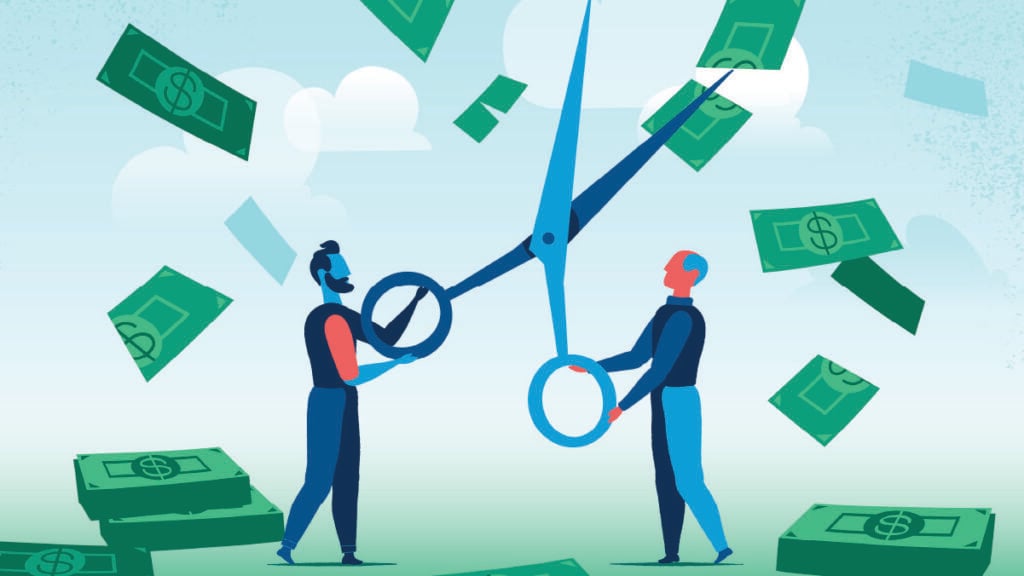President Biden’s State of the Union address may be noted for what he says about Russia’s invasion of Ukraine; our ongoing battle with the pandemic and climate crises; and Biden’s highly-qualified Supreme Court nominee, Ketanji Brown Jackson.
This is as it should be – the first three are existential threats and the Jackson nomination is a history-making opportunity.
But President Biden should clearly explain how much we accomplished through economic policies his administration implemented in year one, including expanding tax credits to help children and families. And he should elevate his tax and revenue proposals which remain essential if we are to pay for environmental restoration, health priorities and peacekeeping, the front-burner items that may dominate the speech.
The Biden administration’s domestic interventions helped produce the biggest one-year job gains in history, eliminated poverty for eight million families, and helped states emerge from a deep recession with strong surpluses that are a stark contrast to the budget cuts states faced after the last slow-to-end recession.
It is ironic, then, that the Republicans chose as their respondent Iowa Governor Kim Reynolds, who seems to be trying to send her state backward. In preparation for Gov. Reynold’s address tonight, Iowa’s Republican-controlled House and Senate rammed through a tax package that drastically cuts taxes for the wealthiest, has low- and moderate-income Iowans pay a larger share of state taxes than their richer neighbors, and leaves the state with fewer resources to invest in schools, health care, and communities.
Gov. Reynolds will be touting a plan that, if fully implemented in 2022, would provide a $23,000 tax cut to the wealthiest 1 percent of Iowans, people already earning an average of $1.25 million a year according to analysis by my colleague Neva Butkus. Meanwhile, the middle 20 percent of Iowans – families earning between $49,000 and $75,000 – would get a tax cut of just $251, an amount that will be quickly erased if costs for health care, after-school care and other essentials go up because of reduced state spending. And reduced spending is inevitable: the plan will cut state revenue by over $1.9 billion a year when fully phased in. That’s more than half of what Iowa spends on education each year.
The Iowa tax plan takes a graduated income tax structure, in which people pay a slightly higher rate on higher income, and converts it into a flat 3.9 percent tax, where a CEO pays the same rate on his millionth dollar of income as a home health care worker pays on her $26,000 annual salary. It eliminates all taxes on retirement income, even for extraordinarily wealthy retirees – even though most retirees already pay little to no tax in Iowa. And it cuts taxes for profitable corporations and worsens racial inequality.
We’ve seen this show before: when Kansas lawmakers slashed the income tax in 2012 and 2013, their economy did not improve, funding for schools and other services plunged, and the state’s bond rating was downgraded. The dismal result led to a U-turn in 2017, restoring many of the taxes that were previously chopped. Tax cuts for the wealthy, which are on the table in nearly every state that’s in session now, won’t help other state economies any more than they helped in Kansas.
Congressional Republicans’ tax plan for the nation – to the degree they’ve described it – is even worse. In addition to fighting the President’s attempts to restore taxes on those who make more than $400,000, the head senator in charge of electing more Republicans announced a plan that would increase taxes on families and workers making less than $40,000. It’s hard to describe what a mistake that would be in a country where inequality is higher than ever and racial divides are unabated.
Other urgent priorities facing the President do not displace the need for better tax policy – they reinforce it. President Biden may mention that 55 profitable corporations paid zero taxes in 2020. As new corporate tax filings are trickling in, many are still paying far less than the 21 percent statutory rate. In 2021, Amazon avoided more than $5 billion in taxes and Netflix avoided more than $1 billion – realities that would almost surely be fixed by the minimum corporate tax that passed the House and is stalled in the Senate.
We also continue to see the uber-rich avoiding personal taxes because of the low rate on capital gains income and other loopholes. The bill that passed the House closes some (alas not all) of those loopholes in ways that would generate substantial revenue primarily from very wealthy shareholders.
Some lawmakers now seem to be focusing on deficit reduction, despite the ongoing imperative to address inequality, poverty, infrastructure and energy. But both spending and deficit reduction unequivocally require the kind of revenue raisers that passed the House. These tax increases on the uber-rich and corporations are a good idea however lawmakers spend the revenue. Making our tax code more progressive is a worthy goal in itself because the system as a whole is not nearly progressive enough. Our economy does far too much to further enrich the already rich. The tax code is one place where we can restore equity.
The world didn’t need a nuclear power to invade a neighbor, on top of a pandemic, on top of a heating planet. The President is right to propose policies to address the military, health and environmental catastrophes we face. Taxes are what will pay for those policies.





